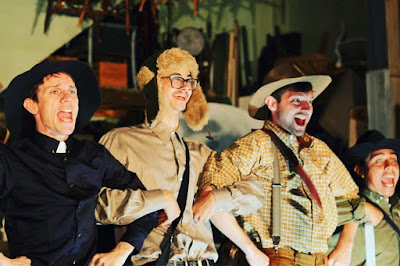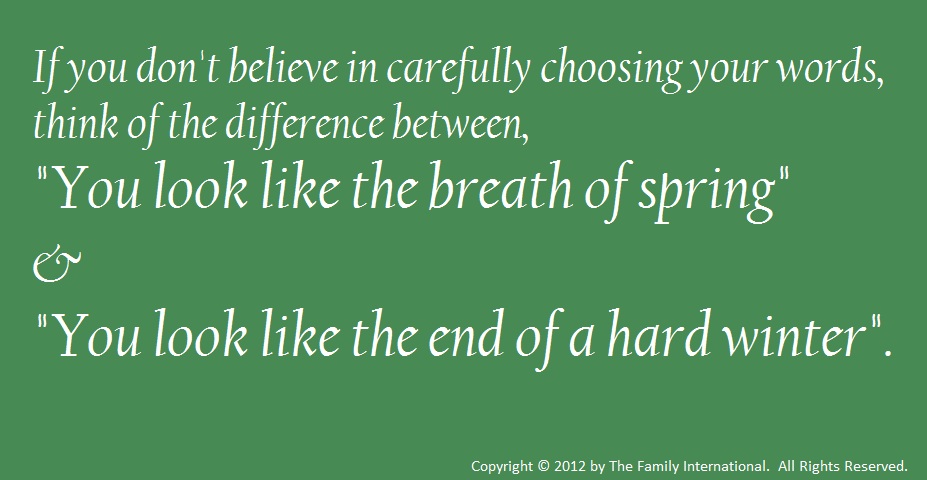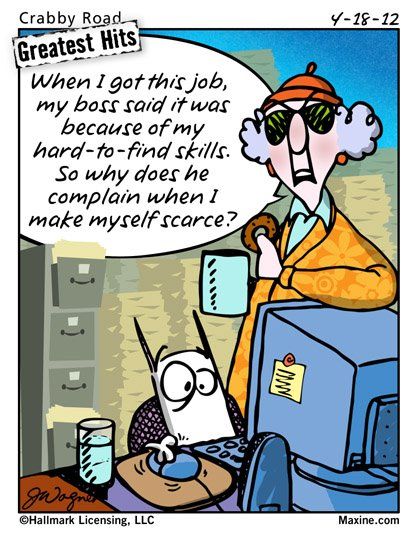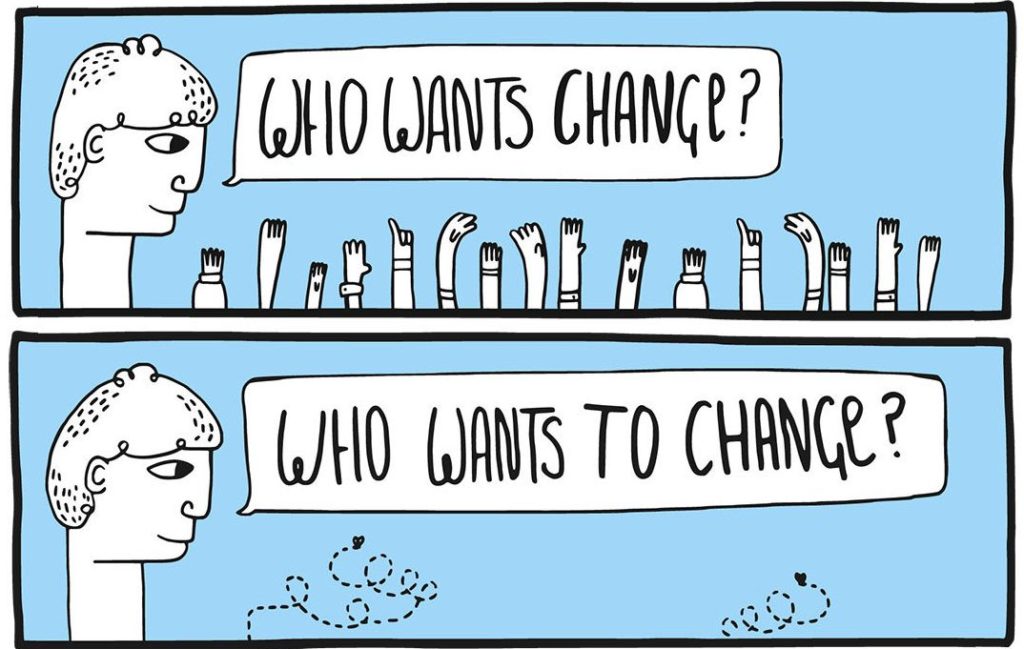Home » Essays and Notes » What a Difference a Word Makes
If Hamlet’s first words in the play, “A little more than kin and less than kind,” are an aside, as most editors indicate by prefacing the line with the stage direction, “aside,” then this line would be Hamlet’s first and shortest soliloquy. At the very least, it would be the first time any character in the play spoke directly to the audience, or if a soliloquy, spoke his thoughts out loud that only the audience could hear. This moment would be Shakespeare’s means of introducing the main character as a man of thought. Shakespeare would also be signaling that much of the ensuing conflict of the play will occur in Hamlet’s mind (his six great soliloquies). However, that stage direction “aside” does not appear before Hamlet’s first line in the First Folio nor in the good quarto that was printed during Shakespeare’s lifetime. Future editors inserted it.
Absent the “aside,” Hamlet would be speaking directly to Claudius, interrupting, with an impertinent wisecrack, Claudius’s line, “But now, my cousin Hamlet and my son—” This could explain why, after Hamlet’s wisecrack, Claudius then continues by shifting to a question, which he could express with some irritation, perhaps after a pause, “How is it that the clouds still hang on you?” To which, Hamlet responds with yet another wisecrack, “Not so, my lord; I am too much in the sun.” This second snarky remark prompts Gertrude to intercede between her son and her new husband with the plea, “Good Hamlet, cast thy nighted color off, / And let thine eye look like a friend on Denmark.”
Hamlet’s two slightly acid “jokes” foreshadow his later admission to Rosencrantz and Guildenstern, “I have of late, but wherefore I know not, lost all my mirth.” This follows the contrived camaraderie between Hamlet and his two former university friends in which they exchange off-color jokes about Fortune’s waist, favors, privates and secret parts. Hamlet’s first two lines also prepare the audience for his later use of sarcasm, which grows more cruel, especially in his brutal treatment of Ophelia. Hamlet’s mirth, which he seems to suggest was once lighter, grows more sardonic as the play progresses. Without the “aside“, this is all foreshadowed in his opening exchange with Claudius.
But how Hamlet’s first words are delivered and what they foreshadow depend entirely on whether an editor, a director or an actor decides that a one-word stage direction is to be or not to be.
29
Oct
| To pray
Prey A prophecy To prophesy |
To speak to God or another deity
The victim of a predator; to victimize A prediction or foretelling To foretell |
Tags: Confusing words, English, Vocabulary
-
Comments
Leave a Comment -
Categories
Upper-intermediate
← What a difference a letter makes!
What a difference a word makes! →
Leave a Reply
Enter your comment here…
Fill in your details below or click an icon to log in:
Email (required) (Address never made public)
Name (required)
Website
You are commenting using your WordPress.com account.
( Log Out /
Change )
You are commenting using your Twitter account.
( Log Out /
Change )
You are commenting using your Facebook account.
( Log Out /
Change )
Cancel
Connecting to %s
Notify me of new comments via email.
Notify me of new posts via email.

An illustration of this point occurred yesterday, when I looked out my back door and saw my elder son holding a garbage can lid and my younger son smacking the lid with a baseball bat. I sighed and went about my business, but soon they were clustering around the door, telling me that Graham had been injured and as a result had lost his memory.
«Who’s that?» asked Ian, pointing at me.
«Mom,» said Graham, memory intact.
That issue settled, I asked how he came to put his memory in jeopardy.
«It happened while we were jousting,» he said. «I struck Ian’s shield, and my sword missed and I smacked into it with my head.»
This got my attention, not because he almost brained himself, but because of his noble choice of words. I hadn’t realized they’d been jousting. I thought they were just playing with bats and garbage can lids. Now the whole thing had a much more Arthurian flavor, a gallant struggle on a legendary battlefield (rather than our muddy yard).
Not only did I realize, in that moment, the power of a well-chosen word to win over an audience, but I saw the world through the eyes of childhood, which I sometimes, as a mother, have the privilege to do. For a child at play, anything is possible, and the worlds he creates are as real as he’d like them to be. It’s a beautiful reminder of limitless imagination.
A few minutes later Graham approached me wearing giant ski goggles. He was metamorphosing now from a knight into something else—a superhero or a giant bug, I wasn’t sure which. He did it with such enthusiasm, though, that I knew I’d buy into it.
I hope I can remember that the next time I’m writing fiction.
During the years when I worked as a medical transcriptionist, I was part of a vocabulary-focused profession that served as a linguistic safety net between physicians and the medical records they created for their patients. Despite the insistence by practice managers and loyal staff that doctors never make mistakes, it’s no secret among nurses and transcriptionists that doctors make plenty of mistakes, especially when they’re tired. That’s one reason why patients undergoing surgery are now asked multiple times prior to the administration of anesthesia to identify which side of their body is to be the operative site.
Another false assumption is that only doctors who speak English as a second language make mistakes while dictating reports. Any veteran transcriptionist can tell you that doctors frequently use a wrong word (which usually results in a grammatically incorrect statement or a raging Malapropism). Back when I was writing my online text entitled Dictation Therapy for Doctors, I commissioned some cartoons from the talented Gerard Donelan to demonstrate the ridiculousness of some errors caused by physicians with impaired language skills.
Each cartoon depicts a false statement dictated by a licensed physician. First, consider some ludicrous examples of what can happen as a result of a physician’s poor grammar.
Now consider what happens when the wrong word is used in a sentence.
In 1972, the United Negro College Fund adopted the statement «A mind is a terrible thing to waste» as its motto. Since then, electronic spell checkers and autocomplete apps (combined with cutbacks in professional editors and proofreaders) have led to higher levels of functional illiteracy wherein a wealthy, complicit, self-important person such as Ivanka Trump (America’s poster child for the Dunning-Kruger effect) can cluelessly write “Congratulations @BorisJohnson on becoming the next Prime Minister of the United Kingston” simply because she didn’t bother to read her text before tweeting it.
Though I cannot blame it on dyslexia, Tourette syndrome, or the bossa nova, over the past few years I’ve noticed a strange phenomenon that I happily attribute to the aging process. In moments when my eyes are tired, my vision is blurred (due to dry eye syndrome), or I simply have not had enough coffee, I tend to make curious word substitutions as I’m reading. Rather than panic at the thought of my possible mental deterioration, I’ve come to revel in some of the crude and hilarious results.
Professors C. Thi Nguyen and Bekka Williams recently published a fascinating OpEd piece in The New York Times entitled «Why We Call Things ‘Porn.'» For escapist reading and bedtime stories, I often turn to one-handed gay fiction which, on occasion, contains such purple prose as “The gunsel’s Tommy gun burped and two of Risotto’s boys collapsed in a heap of human marinara sauce. The door had developed lead measles and was wet with blood.”
Even more delightful is reading a story (which has obviously not been proofread) and coming across a scene in which a man wakes up not knowing how he got home from the previous night’s visit to a gay bar, turns to look at the body lying beside him and then, upon looking in the mirror, wonders how he got «massacre» all over his face. The correct word, of course, should have been «mascara.»
When reading the work of authors who give their characters sentiments like «It was great to have his Redwood thumping inside me,» Strunk & White’s popular guidebook, The Elements of Style (which will celebrate its 100th anniversary next year) no longer applies. Nevertheless, some mistakes can lead to shocking reactions. In today’s overly sensitized world, when a word intentionally used as a joke turns out to be less than funny, the results can be disastrous.
* * * * * * * * *
As we adjust to a world in which a single word can trigger a traumatic reaction in an unsuspecting and highly vulnerable person, I would be remiss in failing to mention a dramedy screened during the 2019 San Francisco Jewish Film Festival. Written by Claudius Pläging, Matthieu Delaporte, and Alexandre de La Patellière (and sensitively directed by Sönke Wortmann), this intricately-plotted family drama based on a popular stage play entitled Der Vorname wins top prize for a clueless character’s insistence on using a powerfully triggering word.
The setting is fairly simple: a middle-aged German couple has invited friends and family over for what should be a relaxed, easygoing dinner at their home in Bonn. But a surprise announcement from one of their dinner guests triggers a series of revelations that could easily destroy several relationships in the room. To understand the forces at play (and how a well-intentioned evening might end up resembling the power games in Edward Albee’s 1962 drama, Who’s Afraid of Virginia Woolf?), it’s wise to take a good hard look at the film’s principal characters.
 |
| Christoph Maria Herbst as the intellectual snob, Stephan, in a scene from How About Adolf? |
Stephan (Christoph Maria Herbst) and Elisabeth (Caroline Peters) are a married couple who have spent much of their professional lives in academic circles (they even named their children Cajus and Antigone). An insufferable intellectual snob with a stick up his ass, Stephan is the kind of scholar who always needs to be right and is easily provoked into an argument, whether it be with the pizza delivery boy or an old family friend. Throughout much of their marriage Elisabeth has sacrificed her ambitions in order to support Stephan in his research. To suggest that he doesn’t appreciate what his wife gave up in order to help advance his career would be a huge understatement.
 |
| Caroline Peters as Stephan’s wife, Elisabeth, in a scene from How About Adolf? |
René (Justus von Dohnányi) has been a close family friend — perhaps Elisabeth’s closest friend ever — since he was orphaned at the age of seven. At that time, Elisabeth’s free-spirited mother, Dorothea (Iris Berben), took René under her wing and made him feel like an integral part of the Böttcher family. She also instilled a love of music in the young boy who, as an adult, became a professional clarinetist who has performed with several symphony orchestras. René is now considering a prestigious job offer from the Bavarian State Orchestra which would require him to relocate to Munich.
 |
| Justus von Dohnányi (René) and Christoph Maria Herbst (Stephan) in a scene from How About Adolf? |
The other guests include Elisabeth’s brother, Thomas (Florian David Fitz), who is the first to arrive. Although he dropped out of high school and never made it to college, Thomas has become a successful stockbroker who relishes the high life and thinks he has a great sense of humor. His pregnant wife, Anna (Janina Uhse), is a former actress who is delayed in traffic. Unable to keep a secret until Anna arrives, Thomas blurts out that they’ve decided on a name for their baby. After everyone present tries unsuccessfully to guess the name, Thomas proudly reveals it to be Adolf. When the others recoil in horror at what that name would do to a young German child, Thomas smugly starts mansplaining all the reasons a name like Adolf could make the young boy stand out in a crowd.
As more alcohol gets consumed, Thomas starts picking on René, who he has always assumed to be gay and has criticized for a seeming inability to have a serious relationship. Despite his sister’s request to stop being so obnoxious, Thomas keeps needling René until the musician decides to push back with a revelation of his own. It turns out that René is already in a relationship with a woman who lives in Munich. In fact, it’s someone they all know: Thomas and Elisabeth’s mother, Dorothea.
 |
| Florian David Fitz (Thomas) and Justus von Dohnányi (René) in a scene from How About Adolf? |
It quickly becomes obvious that while Thomas can dish it out in spades, his fragile macho ego can’t handle the idea of a man he always assumed to be gay fucking his mother. The situation is hardly helped by Anna who, upon arriving, reveals that she’s known about René and Dorothea being an item for several months after seeing them walking together while on a trip to Munich.
The fact that Der Vorname (also known as «How About Adolf?«) was a successful stage play probably accounts for the tightness of the film’s script and the solid acting of its ensemble. Here’s the trailer:
* * * * * * * * *
When Mel Brooks wrote and directed 1967’s sleeper hit, The Producers, many Jews were horrified that he would use Adolf Hitler for the sake of a joke. However, Brooks has frequently stated his purpose in doing so:
«It is impossible to take revenge for six million murdered Jews but, by using the medium of comedy, we can try to rob Hitler of his posthumous power and myths. In doing so, we should remember that Hitler did have some talents. He was able to fool an entire population into letting him be their leader.»
When it comes to spoofing the darkest and most grotesque parts of our culture, many look to Trey Parker and Matt Stone as the anti-heroes of a younger generation who picked up the torch of rude, crude, and refreshingly blunt comedy from Mel Brooks and ran with it through a career that includes 1997’s Orgazmo and South Park, 1999’s South Park: Bigger, Longer, and Uncut, 2001’s That’s My Bush!, 2004’s Team America: World Police, and 2007’s The Book of Mormon.
The two men met while attending the University of Colorado at Boulder where, in 1993, Parker co-wrote the screenplay with Matt Stone, co-wrote the songs with Rich Sanders, and directed Cannibal! The Musical. Parker also starred in the film as Alferd Packer (whose real-life misadventures during the winter of 1874 provided the inspiration for the project) even though he is listed in the credits as «Juan Schwartz.» The screen-to-stage adaptation of Cannibal! The Musical premiered off-Broadway in 2001 and a full-blown stage production was performed at the 2008 Edinburgh Festival.
Cannibal! The Musical is currently receiving its Bay area premiere in four sold-out performances thanks to the efforts of Joel Roster and his friends at The Other Other Theatre Company, who have included a thoughtful warning to audiences in their program which states «Please be aware that this production contains offensive language, violence, adult situations, and all-around debauchery.»
 |
| Poster art for Cannibal! The Musical |
With costumes by Jennifer Brookman, choreograph by Brittney Monroe, and musical direction by Joel Roster (TOOTCo’s artistic director), the story takes place in various locations in Utah and the Colorado Territory between 1873 and 1883. True to the rowdy, goofy kind of comedy that has made Trey Parker and Matt Stone extremely rich, this production stars Kevin Thomas Singer (looking like a bewitched, bothered, and boisterously bewildered Hugh Jackman at the end of an international tour of Oklahoma!) as the not-very-bright Alferd Packer.
 |
| Kevin Thomas Singer stars as Alferd Packer in TOOTCo’s production of Cannibal! The Musical |
Lending solid support in smaller roles are Benjamin Rafael Garcia as George Noon, Darrien Cabreana as James Humphrey, Ben Knoll as Israel Swan, Caroline Schneider as Polly Pry, Henry Perkins as Frank Miller, and Alexander Gomez as a wily Ute Indian chief. Joining in the fun are Alan Coyne as the preacher, Shannon Wilson Bell and LaMont Ridgell as the boisterous trapper, Frenchy Cabazon (with Jennifer Brookman, Jeanine Perasso-Kaczmarcyzk, and Chris Totah handling multiple roles). Ryan Meulpolder earns a special shout-out for his appearance as a confrontational Coloradan cyclops.
The show’s score contains a series of slyly exuberant musical numbers including «It’s A Shpadoinkle Day,» «That’s All I’m Asking For,» Packer’s «Ode To Liane,» «Let’s Build A Snowman,» and Frenchy’s «The Trapper Song.» As Danny Cozart writes:
«When Joel first asked for a Director’s Note, I obviously said D natural — a whole step above middle C. You know the one. After a tense debate, I was brought to the realization that Joel was looking for me to pontificate on the show, as opposed to providing him a preferred pitch. Where to begin. Cannibal! The Musical, as you well know, originally premiered in Brooklyn on December 5, 1876 but closed that same night after the famed ‘Brooklyn Theatre Fire’ was allegedly started from an accident during production. Only one man from the theatre company survived and he alone kept the story alive by telling it as a bedtime story to his children.»
 |
| Alan Coyne, Darrien Cabreana, Kevin Thomas Singer, and Benjamin Rafael Garcia in a scene from Cannibal! The Musical (Photo by: Erin Gould) |
«His children continued to pass their father’s story along to their children until that man’s great-grandson, Trey Parker, decided it was time to bring this epic tale of loss, love, betrayal, and snowmen back to the world at large. Parker and Matt Stone created a film version of this story. It premiered in Colorado in 1993, but only played one night as another tragic blaze known as ‘The Sunbeam Fire’ engulfed the theatre in a 12,000-acre blaze. The original print of the film was lost in the fire, but an original copy of the screenplay survived. After years of searching in Colorado, Joel Roster found the manuscript under lock and key in the basement of the Denver Public Library and, upon its discovery, he lovingly and painstakingly transcribed the entire volume. Upon returning to California, Joel asked if I had any interest in telling this tale and I said ‘OK.’ I could elaborate on my feelings about the piece, but I seem to have run out of room.”
 |
| Kevin Thomas Singer places a loving hand on Alferd Packer’s beloved horse, Liane, in Cannibal! The Musical |
Though TOOTCo’s performances of Cannibal! The Musical quickly sold out, Jason McHugh’s 2011 e-book entitled Shpadoinkle: The Making of Cannibal! The Musical is available on Amazon (along with ceramic mugs bearing the message «It’s A Shpadoinkle Day»). And be honest: How can you not love a musical in which, when a group of freezing men stop to take a break as they hike through the snow en route to Breckenridge, Colorado, after munching on some candy, Humphrey turns to the group’s fearless leader and innocently asks «Fudge, Packer?» Thankfully, the original 1993 film is available on You Tube for your delectation and delight.
Posted by Pat on August 8, 2021 in Uncategorized | ∞

What we say has power to affect others and our experiences with them. And the words we choose to describe ourselves and our situations determines much of our experience!
Are we…
- rich or temporarily blessed,
- lonely or enjoying solitude, or
- struggling or growing through resistance?

We know that… well-educated isn’t the same as smart, talents are different than skills, and learning is not the same as education.
Words may seem similar but be noticeably different in what they mean (and how they are perceived!)
In his Meditations, the Stoic philosopher and Roman emperor Marcus Aurelius repeatedly played with language and logic this way. Multiple times he tackled the concept of change (something that scares most of us) by rephrasing it as…
- a new beginning,
- a form of growth, or
- the natural transition from the old to the new.

Words are like maps in that maps are representations which by their very nature have to generalize, distort, or delete information. (think ‘chair’ or ‘good’) Simply put, words are not the objects that they describe. Language is a miracle of abstraction that tends to get mistaken for reality itself.
I’ve written before that the map is not the territory! And that the power of our perspective is critical.
Change…alter…transform. The meaning of our experience depends on us and how we decide to label it. And those labels are completely subjective.
We can choose to transform any negative energy into an aura of “possibility.” It is our perception that will make the difference in the way we feel.
I’m for transformation! Choose some four letter words you prefer to use and experience I choose words like calm, love, care, help, save, give, life…
What would some of YOURS be?
